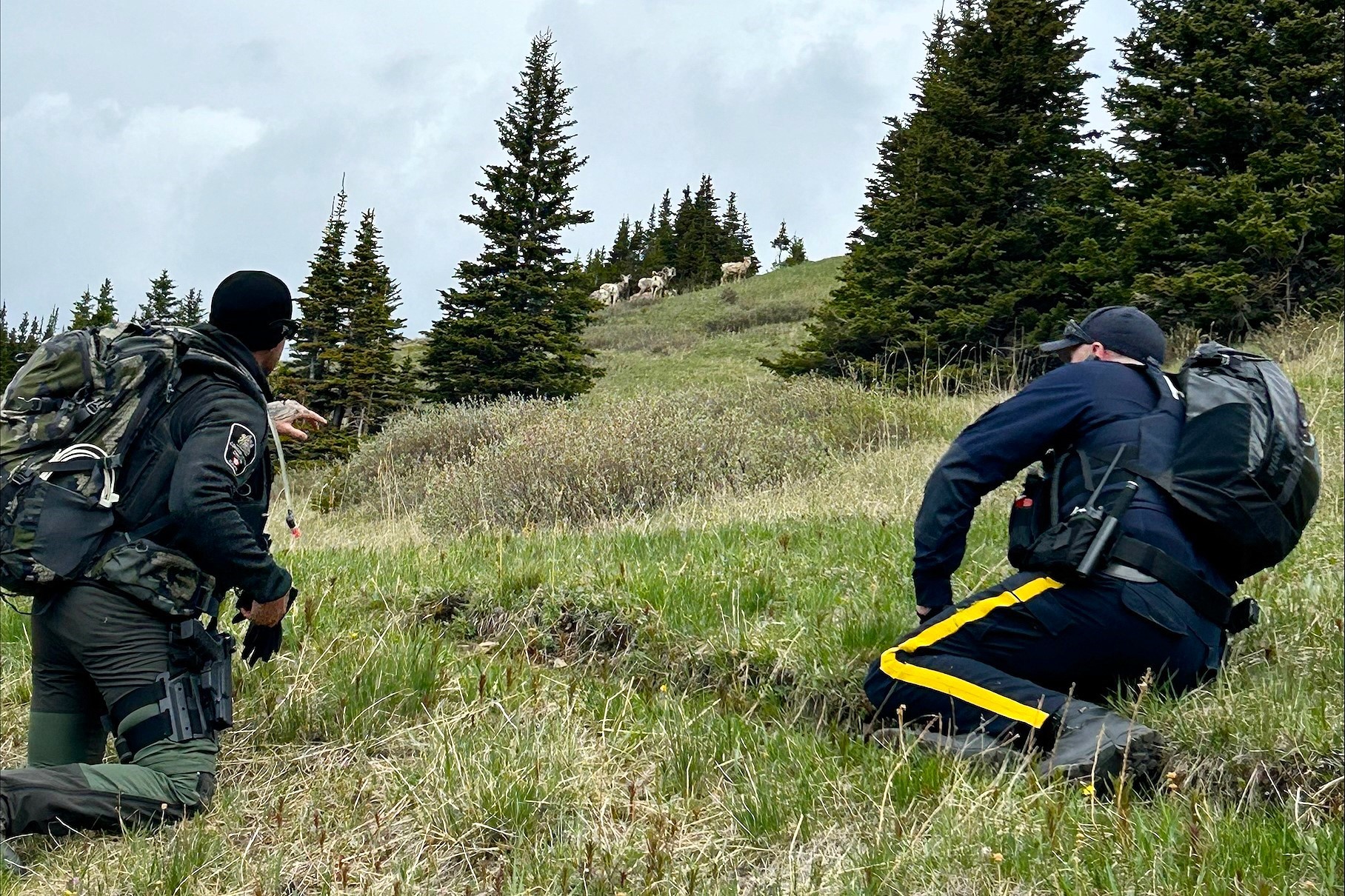The radar system has been removed from the top of Big Hill, and most of the heightened security measures put in place for the G7 Leaders Summit have been stepped down.
No arrests were made and no tickets issued during the G7 Summit and related demonstrations, according to the Integrated Security and Safety Group (ISSG).
Nor was any wildlife harmed.
RCMP Chief Superintendent David Hall, the security director, credited the success of the operation to two key factors.
“I’m surprised we didn’t see more demonstration activity, but that comes down to the strength of our plans, the effectiveness of our public engagement, and our ability to reach the communities impacted by the event,” Hall said.
“That’s not to say the risks didn’t exist,” Hall said. “The risks and threats we were planning for still exist. Our plans ensured those risks didn’t materialize, but if they had, we were prepared.”
In the weeks leading up to the Summit, members of the RCMP’s community relations group worked closely with local residents and businesses across Canmore, Banff, Calgary, Bow Valley, Stoney Nakoda Nations, and Kananaskis to provide information sessions and gather feedback.
“In the Kananaskis region, we literally went door-to-door to speak with residents about their concerns, and in the end, that really paid off for us.”
While no arrests were necessary, there were incidents where individuals without proper accreditation were escorted out of the controlled access zone.
Charges have not been laid against the pilot of a rogue plane that was escorted out of the no-fly zone to Brooks Airport, Alberta, nor has the pilot been detained. Hall said partner agencies, including Transport Canada, are reviewing regulations to determine if charges will be pursued.
Most roads have reopened to the public, with only Highwood Pass, part of Highway 40, remaining closed to vehicle traffic until Saturday.
The ISSG advises some police presence will continue as crews clear equipment and wrap up operations.
Alberta Conservation Officers and Fish and Wildlife Enforcement Services managed access to parks and public lands, monitored backcountry areas, and responded to over 200 minor wildlife occurrences.
"About half of those were to both grizzly bear and black bear reports," said Hall. "All of those were minor in nature, and as a result, we were able to take minimal action to mitigate the risk. There were no relocations or any significant efforts needed to manage these incident."
A private bear dog contractor assisted the mitigation and response team, primarily using noise deterrents as part of their risk management efforts.
To maintain security, the ISSG established a Controlled Access Zone and issued a Notice to Airmen around Kananaskis Village. Coordinated efforts with Transport Canada, the Canadian Armed Forces, and NAV Canada ensured safe management of air traffic, allowing world leaders and delegates to travel safely.
The cost of the security duty will be disclosed once operations are completed.
